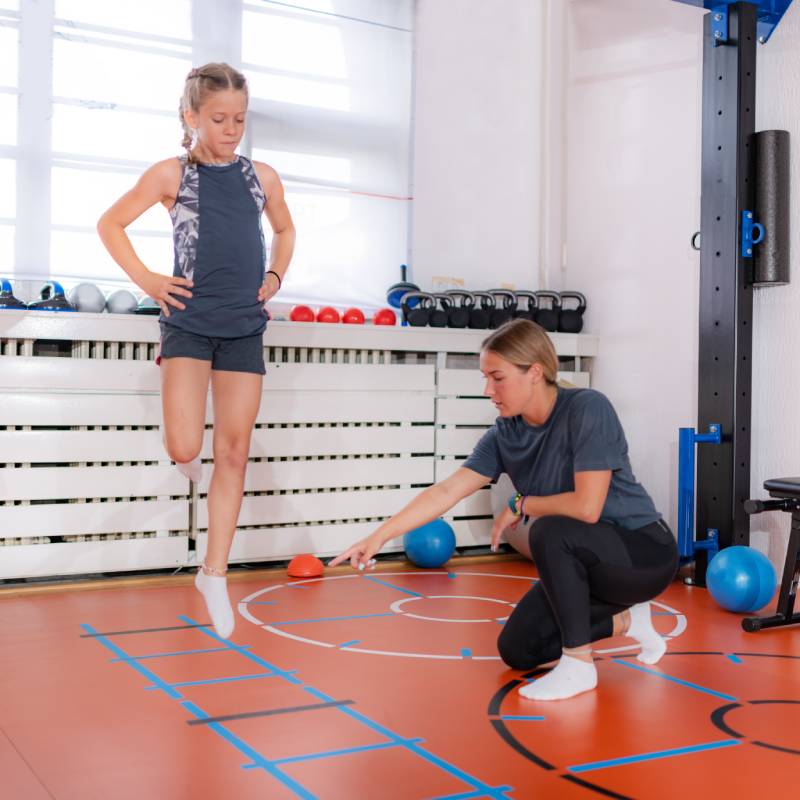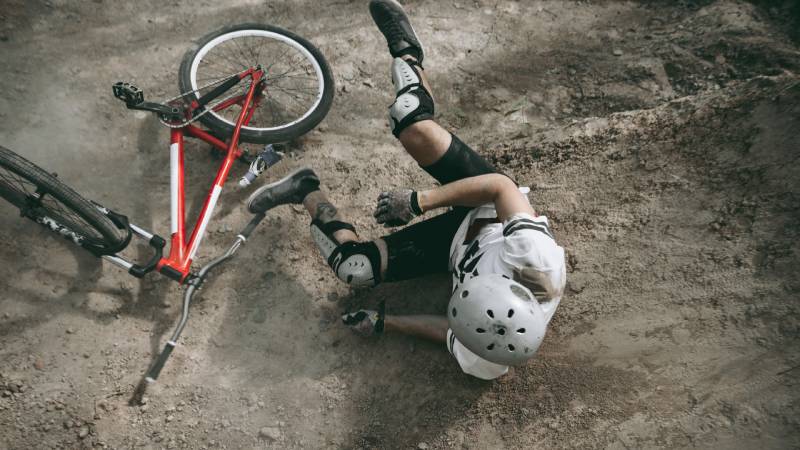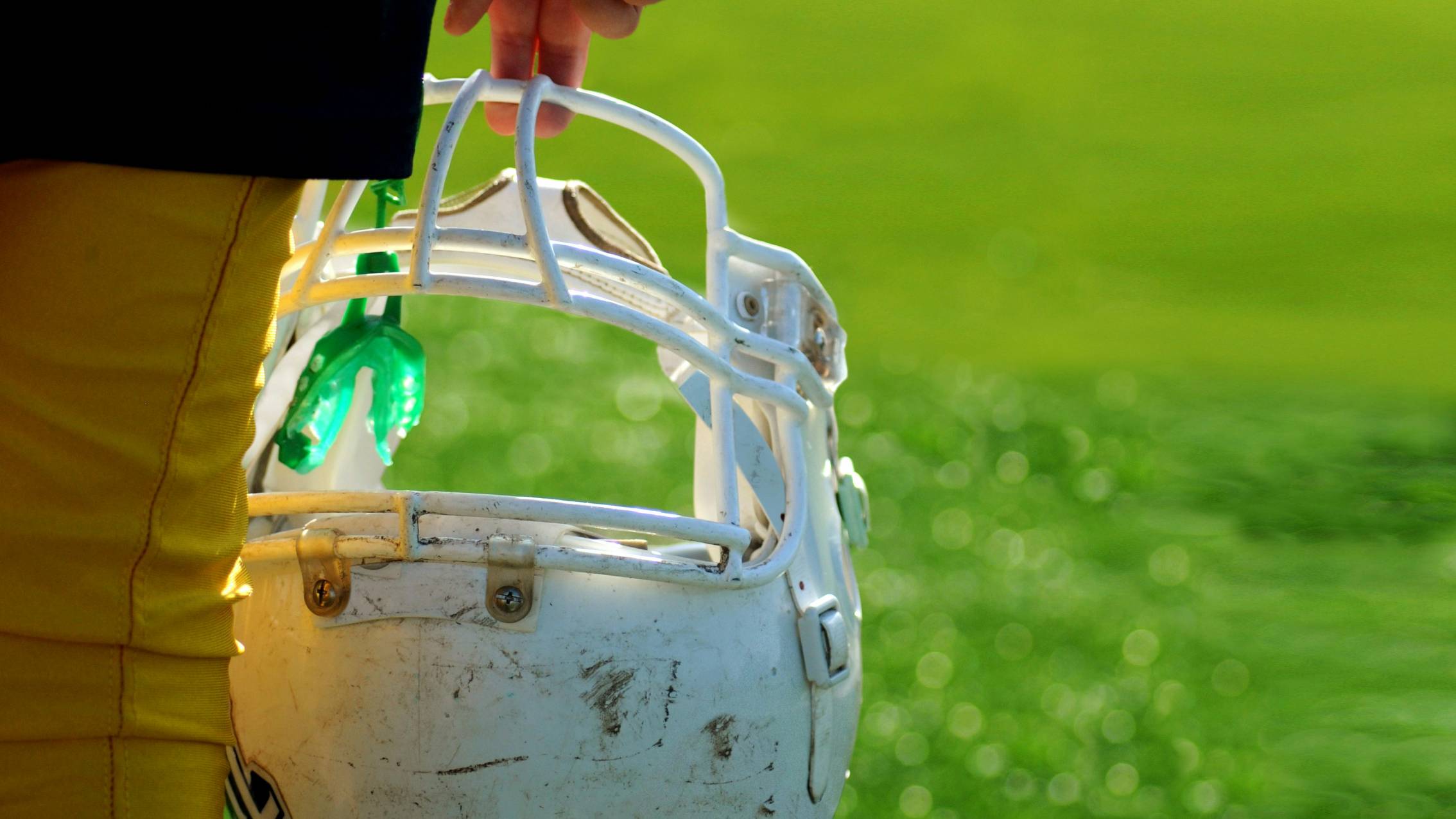Concussion: Tests and Examinations for Accurate Diagnosis

Concussions, which are minor brain injuries resulting from a blow to the head, represent a major public health challenge in the sporting world. Although rarely fatal, undiagnosed or poorly managed concussions can have serious long-term consequences. Consequently, rapid and accurate diagnosis is essential for effective intervention and recovery, to reduce the risk of sequelae and enable a safe return to competition.
Limitations of Field Tests for the Detection of Concussion
While recognizing symptoms on the field is essential for identifying potentially concussed athletes, initial assessments don’t always lead to a definitive diagnosis. The complexity of the brain and the variability of concussion symptoms make it difficult to accurately identify the injury on the basis of clinical signs alone. Indeed, some athletes may present subtle or delayed symptoms, while others may show no obvious symptoms at all. In addition, concussion symptoms may resemble those of other head injuries or pre-existing medical conditions, further complicating diagnosis.
Concussion: Should further tests be carried out?
To confirm the diagnosis of concussion, assess the extent of injury and guide treatment decisions, various tests and complementary examinations may be required. The choice of tests depends on the athlete’s age, medical history, severity of symptoms and the physician’s opinion. It is important to stress that these tests do not replace a thorough clinical assessment and careful observation of symptoms by a qualified health professional.
Concussion diagnosis and medical imaging
Medical imaging plays a crucial role in the diagnosis of concussion [1], enabling the brain to be visualized and any structural abnormalities to be identified. The two most commonly used imaging techniques are computed tomography (CT) and magnetic resonance imaging (MRI).
- Computed tomography (CT): CT uses X-rays to create detailed images of the skull and brain. It is particularly useful for detecting skull fractures, cerebral bleeding (intracranial hematomas) or other major structural lesions. CT is usually performed as an emergency procedure to rule out serious injuries requiring immediate surgical intervention.
- Magnetic Resonance Imaging (MRI): MRI uses powerful magnetic fields and radio waves to produce detailed images of the brain. It is more sensitive than CT and can detect more subtle brain lesions, such as cerebral contusions (concussions) or diffuse axonal injury (DAI). These lesions, which are not visible on CT, may explain the persistent cognitive and neurological symptoms observed in some concussed athletes. MRI can also be used to assess the extent of lesions and monitor brain healing over time.
It’s important to note that medical imaging doesn’t always show abnormalities in concussed athletes. A normal imaging test does not necessarily rule out concussion, and the diagnosis must be based on a combination of factors, including clinical symptoms, history of injury and results of other tests.
Neuropsychological Testing and the Impact of Concussion
Neuropsychological evaluation assesses the impact of concussion on the athlete’s cognitive functions. These standardized tests can identify subtle cognitive deficits that are not always apparent on clinical examination. The results of neuropsychological tests can help to :
- Confirming the diagnosis of concussion: Below-normal scores on neuropsychological tests may indicate brain dysfunction caused by concussion.
- Identify affected cognitive areas: Tests can identify which specific cognitive functions are most affected, such as memory, concentration, speed of information processing or problem solving.
- Monitoring recovery: Repeated neuropsychological testing during the recovery process can assess the improvement in the athlete’s cognitive functions and determine his or her readiness to return to play.
Types of neuropsychological tests
- Computerized tests: These tests are administered and scored electronically, offering high reliability and accuracy. They can assess a wide range of cognitive functions, such as memory, attention, concentration, language and speed of information processing.
- Paper-and-pencil tests: These traditional tests may include short-term memory tasks, symbol retrieval, word association or logical reasoning tests [2].
Balance and coordination tests
A concussion can affect an athlete’s balance and coordination due to disturbances in the vestibular system located in the inner ear. These tests may include:
- Walking tests: The athlete can be asked to walk in a straight line, in tandem (heel of one foot against toes of the other) or with eyes closed to assess static and dynamic balance.
- Romberg tests: The athlete stands with feet together and eyes closed. The doctor observes the athlete’s ability to maintain balance.
- Posturography tests: These computerized tests measure the athlete’s ability to maintain posture on an unstable platform.
Physiological tests
In some cases, physiological tests may be used to complete the concussion evaluation.
- Electroencephalography (EEG): EEG measures the brain’s electrical activity using electrodes placed on the scalp. Although EEG is not commonly used to diagnose concussions, it can sometimes reveal abnormalities in brain electrical activity in some concussed athletes [3].
- Vestibular tests: These tests assess the function of the vestibular system, which plays an important role in balance and eye movement coordination. Vestibular dysfunction can occur after concussion and may contribute to sensations of dizziness and instability [4].
Concussion follow-up tests
A rigorous follow-up process is essential for the optimal recovery of a concussed athlete. This can include:
- Repeated testing: Neurocognitive and balance tests can be repeated at regular intervals during the recovery process to monitor the athlete’s improvement and ensure that symptoms resolve completely before returning to physical activity.
- Follow-up imaging: In some cases, follow-up imaging, such as MRI, may be necessary to monitor brain healing and ensure that there are no late complications.
Towards a Better Understanding of Concussion
Accurate diagnosis of concussion requires a multi-disciplinary approach combining in-depth clinical assessment, tests and further examinations. Interpreting the results requires medical expertise and individual consideration of the athlete’s symptoms, medical history and mechanism of injury. Based on a complete and accurate diagnosis, medical professionals can develop individualized treatment plans and guide athletes towards a safe and progressive return to competition, minimizing the risk of long-term complications.
Please note that we are not medical professionals, and that it is important to consult a physician when concussion is suspected. The doctor’s recommendations take precedence over the advice presented in this article.
Sources :
[1] May Fair. (2022). LÉSION TRAUMATIQUE CÉRÉBRALE ET IMAGERIE MÉDICALE. https://www.radiology.ca/fr/article/traumatic-brain-injury-and-medical-imaging/
[2] Institut des Commotions Cérébrales. LA NEUROPSYCHOLOGIE ET LES COMMOTIONS CÉRÉBRALES.
https://institutcommotions.com/neuropsychologie-commotions-cerebrales/
[3] McGuill. (2010). Les commotions modifient le cerveau. https://www.mcgill.ca/channels/fr/news/les-commotions-modifient-le-cerveau-169732#:~:text=Ces%20tests%20%C3%A9valuent%20l’activit%C3%A9,associ%C3%A9e%20%C3%A0%20une%20t%C3%A2che%20cognitive
[4] Commotion cérébrale.(2019). Balance & Dizziness Canada. https://balanceanddizziness.org/troubles-vestibulaires/commotion-cerebrale/?lang=fr
Don't miss our new ultimate guide to concussion in sport!
Karl Demers

On the same subject
Although generally not fatal, undiagnosed or inadequately treated concussions can lead to serious long-term complications, such as permanent […]
Explores the different phases of concussion management, from the initial recognition of symptoms on the field to post-traumatic rehabilitation.
Although often underestimated as a silent epidemic, concussions are one of the most common injuries in the world of sport.


